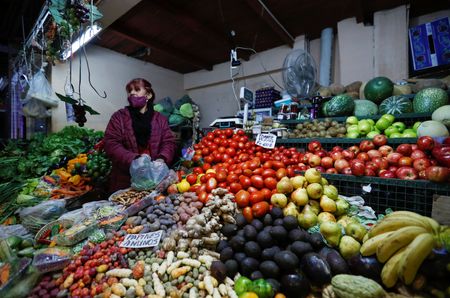By Nicolás Misculin
BUENOS AIRES (Reuters) – Argentina’s government announced a deal on Friday with supermarkets and suppliers of mass consumer goods to freeze or tightly regulate prices of some 1,500 products, in an attempt to contain inflation that is estimated to reach 100% this year.
The center-left Peronist government is battling a plunge in popularity and street protests as spiraling prices sap people’s purchasing power, even as a steep deficit and dwindling foreign currency reserves create risks for the economy.
The Economy Ministry said in a formal decree that a new “Fair Prices” program, covering consumer goods from food and beverages to cleaning products, would help to “stabilize the prices of products in favor of the consumer”.
Some items will have a 4% rise before entering the price freeze scheme for four months; others will start the program at current values but may increase up to 4% per month.
Ahead of elections next year, anger has started to swell with poverty levels near 40%. Thousands protested on Thursday against the government and the International Monetary Fund (IMF), which has lent billions of dollars to the country.
“We have triple-digit inflation. The rise in food prices is barbaric, and we are looking at a brutal December,” said one protester, Monica Sulle.
Sebastian Martino said many more people were now coming to soup kitchens, unable to afford the price of food.
“Until two or three months ago, people could eat every day. Now they can’t because the basic food basket has increased dramatically, and salaries are losing ground,” he said.
(Reporting by Nicolas Misculin and Reuters TV; Editing by Eliana Raszewski and Angus MacSwan)

